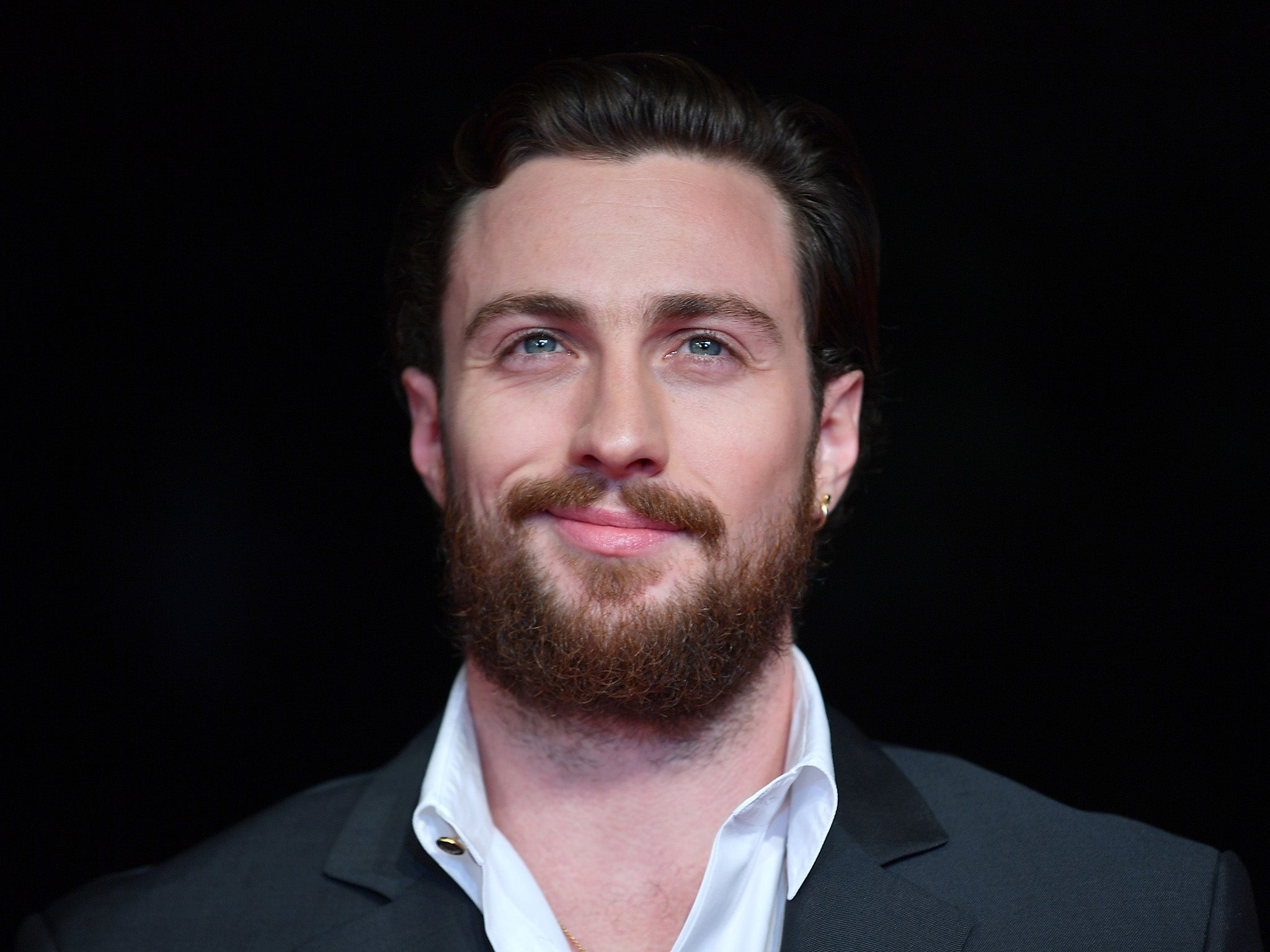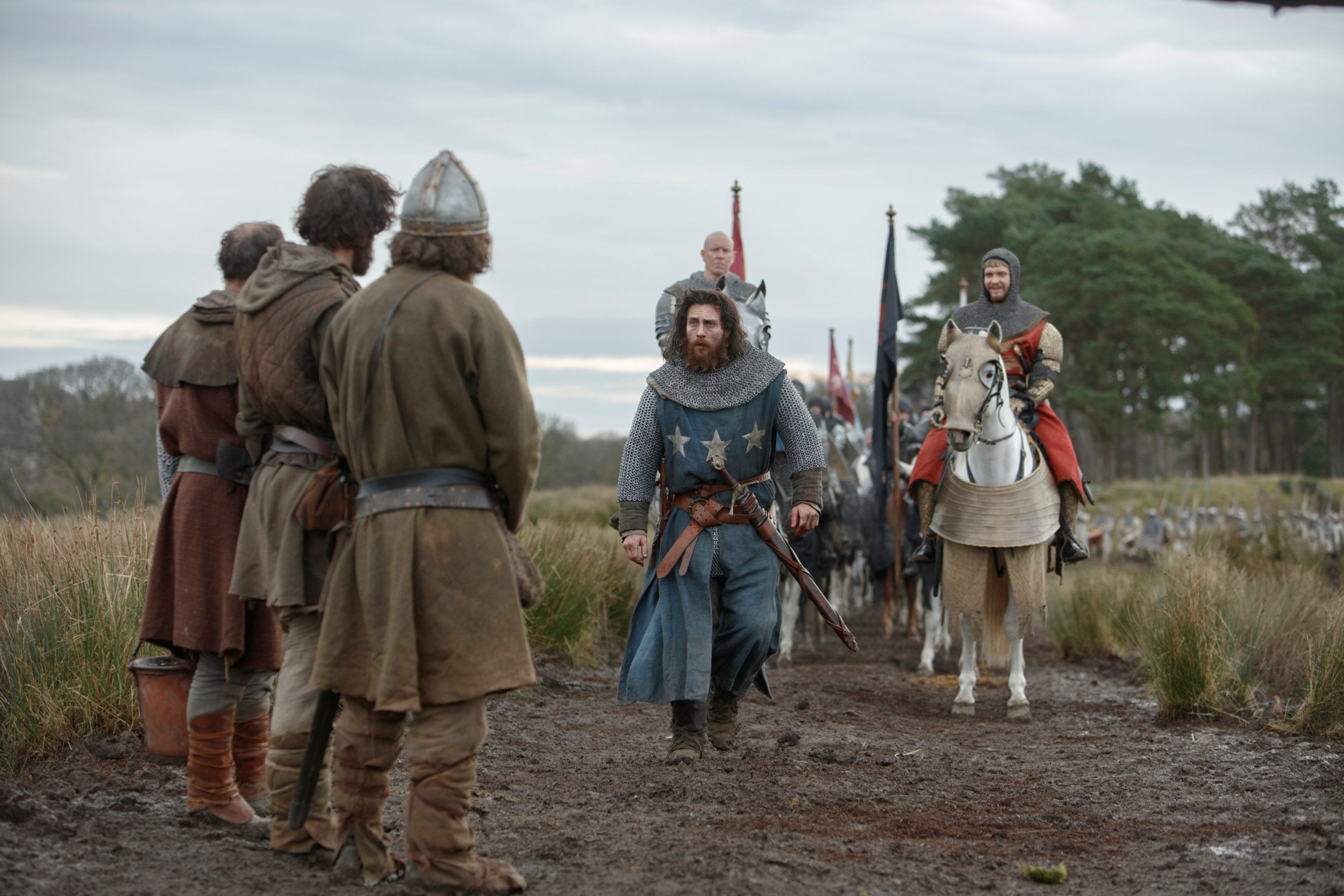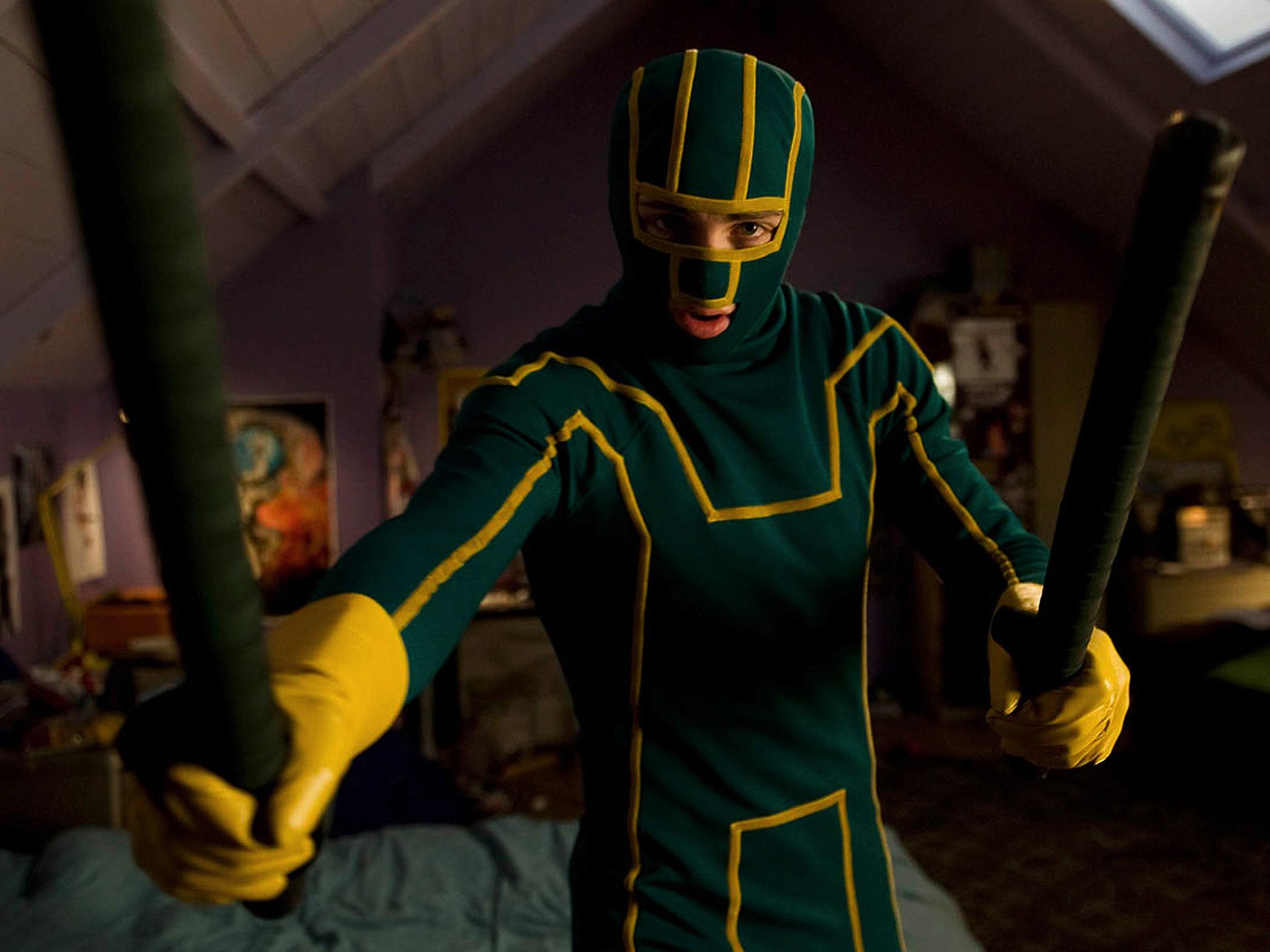Aaron Taylor-Johnson interview: 'My wife and kids are my life – acting works around them'
The British actor speaks to Alexandra Pollard about the gruelling conditions of his new film 'Outlaw', and how his wife, director Sam Taylor-Johnson, and their children, took precedence over acting


"It’s nice to play unpredictable," Aaron Taylor-Johnson says. “Someone who you don’t know if they’re gonna stab you, or make you laugh.”
On the whole, James Douglas – the Scottish knight who Taylor-Johnson plays in Netflix’s medieval epic Outlaw King – seems more likely to do the former. As the right-hand man to Chris Pine’s Robert the Bruce (a less ridiculous casting choice than it might sound), Douglas is a bundle of unalloyed rage, determined not only to help the Bruce claim his title as King of Scotland, but also to avenge his father and win back the land stolen from him by the English king, Edward I. By the end of the film – which is ambitious, gruesome, poignant and sometimes a little silly – Douglas is violently, almost uncomfortably deranged.
“I’m pretty unhinged and filthy,” Taylor-Johnson agrees – though the character wasn’t quite like that to begin with. It was only when he started researching the real Douglas, and speaking to historians, that the role started to evolve beyond director and co-writer David Mackenzie’s original script.
“He was this legend, this mysterious dark character who would be brutal and violent,” he says, “but when he’s with his brothers he’s this loveable, funny guy. The more we did research, the more we found these moments that got built into the story.
“And later on in life,” he continues, eager to impart some of the knowledge he’s accrued, “when Robert the Bruce died, he carried his heart in a box around his neck and carried it to the holy lands. So it just goes to show how much he really loved his friendship with Robert.” It’s not quite how I’d demonstrate my friendship, but to each their own.

It’s not surprising to learn that Taylor-Johnson studied Douglas so diligently. In conversation, he is intense and fastidious, his answers thoughtful, though I suspect mostly carefully prepared. He’s also a little cagey. When his eyes meet mine (which isn’t often) his gaze is somewhere between nervous and suspicious. Throughout our interview, his hands – adorned with a chunky gold ring – are clasped tightly together as if in anxious prayer. “I’ll never be Jennifer Lawrence or Tom Cruise,” he once said. “Someone who can hold a movie and then be charming and charismatic doing promotion.”
Still, he’s got the first part down. The 28-year-old, born and raised in the Buckinghamshire town of High Wycombe, has been acting since the age of six, when he appeared alongside Rufus Sewell in a London production of Macbeth. A handful of small film and TV spots followed, but it was with a run of starring roles in his late teens – as “sex god” Robbie in 2008’s Angus, Thongs and Perfect Snogging, as John Lennon in the 2009 biopic Nowhere Boy (more on which later) and as a wannabe superhero in 2010’s Kick-Ass, three films that could hardly be more different – that he made his name. Since then, he’s starred in some big-budget blockbusters (Godzilla and Avengers: Age of Ultron) and won a Golden Globe for his role as a sadistic rapist in Nocturnal Animals.

Thanks to those blockbusters, Taylor-Johnson is familiar with physically demanding roles – he trained three times a week, eating six small meals a day, to bulk up for Kick-Ass 2 – but Outlaw King was on another level. Even the months of stunt rehearsals, horse training and boot camp didn’t prepare him for the “relentless, gruelling” shoot.
“You can train as much as possible in your joggers, on a bunch of stunt mats in a warehouse with sticks,” he says, “and then you go out on a battlefield and you’re in mud, and there’s horses around you, and you’ve got heavy chainmail on, and you’re exhausted because you’ve been doing take after take for a week and the conditions are harsh and cold and raining.”
So was it all worth it? So far, the reviews have been ambivalent. One particularly harsh write-up, in the Guardian, asserts that “Aaron Taylor-Johnson disrupts every scene in which he appears with an entirely new breed of bad acting”. It’s lucky, then, that he isn’t in this business for the reviews. Or even for the resulting film.
“The film at the end is not my experience,” he says. “That’s the audience’s experience that they get to enjoy.” Or, indeed, not enjoy. “My experience is when I’m making it. I wanna learn and grow, and that’s with a filmmaker really.”
So he doesn’t mind when the final product isn’t what he’d hoped? “Yeah. My decision is to work with this filmmaker, right? Then I can’t lose. So the movie could suck. It doesn’t matter. Because that’s not what I was doing it for. I wasn’t doing it to look good in a movie, or to make the movie be successful, I wanted to go on a journey; to experience what this character went through and to be able to learn from this director.”
He married one such director. When he first started dating Sam Taylor-Johnson (then known as Sam Taylor-Wood) in 2009, just after she had directed him in Nowhere Boy, the news prompted a flurry of scandalised headlines. Chiefly because she was 42, and he had just turned 19. In interviews at the time, the director – now well known for her fraught experience directing 50 Shades of Grey – was asked if she was having a mid-life crisis. Or if she was in competition with her ex-husband, who was then dating 23-year-old Lily Allen. She rightly bristled at both suggestions.
Nine years on, the pair, who have merged their surnames, are still together. They have two children, aged eight and six, as well as two step-children from the director’s previous marriage. They’ve also just worked together again, on A Million Little Pieces – an adaptation of James Frey’s rehab memoir and their first feature film collaboration since Nowhere Boy.
The tabloid consensus at the time, though, was that the relationship wouldn’t last. “Was it? I dunno, I never read any headlines so I wouldn’t know,” Taylor-Johnson shrugs – though I’m not sure I entirely believe him. Does he feel that they’ve proven people wrong? “No, because my relationship’s not to prove other people wrong, is it?” Point taken.
“My relationship’s because I love my wife, and I love my kids, and that is my life,” he continues, his gaze now unwavering. “The reason I wake up in the morning is to be with my family. When I was younger acting was my first love and passion, and since I met Sam, she and my kids, they’re my priority and my life, so my work works around them.”
We’ve got to wrap up now, his publicist announces, preparing to whisk Taylor-Johnson out of the room. “Yeah sure,” he says, before carrying on anyway. “I never read anything because it’s bizarre when you become a talking point, and judgement comes every which way, positive and negative right? It can really screw people up, and my thing was to just be in our bubble, and take us out of the equation.
“It never affected me because I just knew what was true to me, and I love Sam from the bottom of my heart. She’s everything to me, so that was all that really mattered, you know? When you’ve got security in that, you’ve only got yourself to answer to. I don’t need to answer to anyone else.
“That’s how I attack everything in my life,” he concludes. “When it comes to my jobs, when it comes to making decisions, you do it for yourself. You don’t do it for anybody else.”
Outlaw King, the new film starring Aaron Taylor-Johnson and Chris Pine, is released by Netflix on 9 November
Join our commenting forum
Join thought-provoking conversations, follow other Independent readers and see their replies
Comments
Bookmark popover
Removed from bookmarks